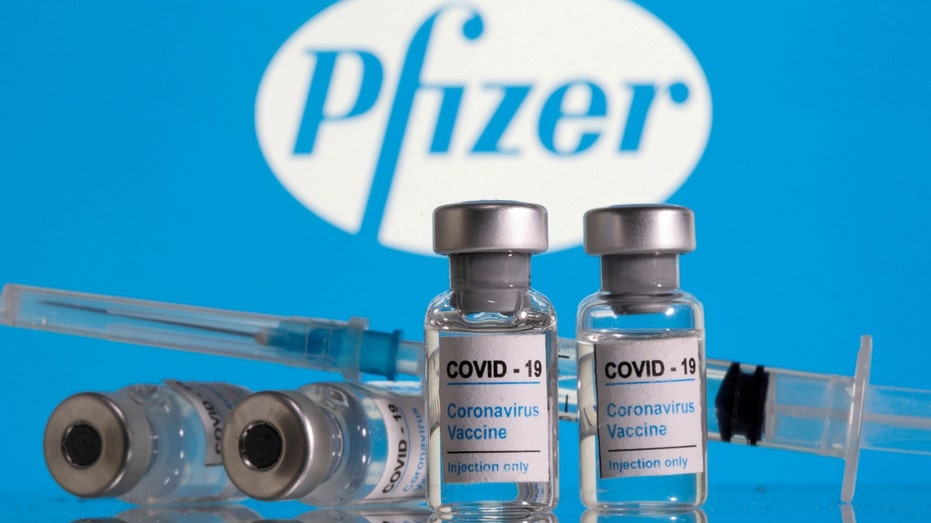CDC advisory panel considers Pfizer COVID-19 boosters for 12- to 15-year-olds
The adolescents could gain access to the shots for the first time if the panel and CDC sign off
Vaccine experts advising the Centers for Disease Control and Prevention (CDC) are scheduled on Wednesday to consider whether adolescents 12 to 15 years old should gain access to COVID-19 boosters for the first time.
The experts’ endorsement would be one of the final steps before doctor’s offices, schools and other vaccination sites make booster shots from Pfizer Inc. and partner BioNTech SE available to 12- to 15-year-olds.
Until now, only people who are 16 and older have been able to get an extra dose, unless they have a weak immune system.
Health authorities have been trying to make the shots available to younger ages, however, as the omicron variant spreads through communities, sickening hundreds of thousands, and threatens to disrupt schools trying to stay open.
FORMER ACTING CDC DIRECTOR WARNS OF 'DILEMMAS' WITH COVID TEST KITS
As part of the effort to make boosters available to 12- to 15-year-olds, the Food and Drug Administration (FDA) on Monday cleared the shots for the group, among other moves.
Yet the FDA’s move only permits use of the shots outside clinical trials. Many vaccination sites and states wait for the CDC to issue an endorsement before administering the extra doses.
The CDC on Tuesday backed the shots for immunocompromised children 5 to 11 years old, who had also received an FDA green light this week. CDC said it would decide on adolescent boosters after its advisers weighed in.

FILE PHOTO: Vials labelled "COVID-19 Coronavirus Vaccine" and a syringe are seen in front of the Pfizer logo in this illustration taken February 9, 2021. (REUTERS/Dado Ruvic)
The experts, part of the CDC’s Advisory Committee on Immunization Practices, makes recommendations for childhood vaccines and other shots. The panel includes medical doctors, immunologists, pediatricians and other experts.
The CDC generally backs the panels’ recommendations. Once the agency issues its recommendation, the boosters should become quickly available for 12- to 15-year-olds because they take the same dose as older people.
At least 16 million children ages 12 to 17 years have received the Pfizer-BioNTech vaccine since its authorization in May, which means immune defenses may have started to wane in children who got the shots early on.
Children and adolescents are less likely than adults to become infected with COVID-19 and generally experience milder symptoms if they do get infected. Yet some have been hospitalized and in rare cases, died.
Some hospitals and health authorities have reported an increase in pediatric hospitalizations during the omicron wave.
Early studies indicate boosters may be needed to fight omicron, and health authorities have been urging those eligible to get the extra doses.
CLICK HERE TO READ MORE ON FOX BUSINESS
Boosters will help protect adolescents from severe cases of COVID-19, and could also help reduce the spread of the disease, according to FDA officials.
"The hope is by reducing the number of 12- to 15-year-olds who get COVID-19 of any form that we will help reduce the transmission of COVID-19," Peter Marks, the FDA’s top vaccine regulator, told reporters on Monday.
Vaccines and boosters are taking on heightened significance as educators and school officials hope to limit educational disruptions as the pandemic enters its third year.
Many schools are pressing ahead with trying to stay open even as omicron’s rapid spread is creating labor shortages. A lack of available testing has also created delays.
FDA authorizes Pfizer’s antiviral pill to treat COVID
Dr. Nicole Saphier says the treatment is a ‘massive tool’ to reach an ‘endemic’ state on ‘Kennedy.’
More than 3,500 schools have announced closing for at least one day this week, according to Burbio, a Pelham, N.Y., data company that is monitoring K-12 school closures in 5,000 districts across the country.
Dennis Roche, co-founder of Burbio, said the average closure is roughly five days but varies from one day to two weeks as schools implement testing or receive results back that have forced some teachers to stay home.
The Pfizer-BioNTech vaccine was found to be safe and 92% effective in adolescents, according to a recent study published by the CDC.
Some parents have expressed concern about the risks of heart-related conditions including myocarditis associated with the use of messenger RNA vaccines, especially in younger males.
Health experts have said the myocarditis risk is low in children who are vaccinated and less risky than if a child got COVID-19.
GET FOX BUSINESS ON THE GO BY CLICKING HERE
The FDA said its decision to expand boosters to 12- to 15-year-olds followed a review of real-world data from Israel, including safety data from about 6,300 adolescents who got a third dose five months after their second shot.
The Israeli data didn’t show any new safety concerns or detect any new cases of myocarditis, the FDA said.
Dr. Marks said the risk of teens contracting myocarditis after the third dose has been found to be about one-third lower than the risk after a second dose. Those who have developed the condition, he said, generally have mild inflammation and experience a median hospital stay of one day.





















